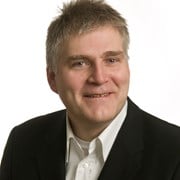The United Nations Climate Change Conference is an annual meeting place, where governmental authorities, politicians, industry representatives, research communities and non-governmental organization from 190 countries will gather together to negotiate ways they can reduce their greenhouse gas emissions.
“SINTEF has expertise and open research we want to share. During COP, we will present topics such as “CO2 DataShare”, which is an open portal that collects quality-assured data from CO2 storage projects. This is data that is useful and freely available to anyone who is interested in CO2 storage,” said Nils Røkke, Executive Vice President Sustainability in SINTEF.
This year’s conference, also known as “COP27”, will take place in Sharm El Sheikh in Egypt.
“SINTEF works with climate technology in collaboration with industry and academia around the world. The climate targets must be addressed across national borders, which is why SINTEF participating in this climate summit,” said CEO SINTEF Alexandra Bech Gjørv.
Sharing open research
The International Energy Agency (IEA), the International Renewable Energy Agency (IRENA), and representatives of the United Nations Framework Convention on Climate Change recently published the “Breakthrough Agenda” report. The report’s message is that closer international collaboration is crucial for achieving a successful energy transition on nature’s terms. The report emphasises greenhouse gas emission reductions in five sectors: power, road transport, steel, hydrogen and agriculture. These five sectors are responsible for 60 per cent of global greenhouse gas emissions.
“COP27 is an important meeting place for increased collaboration, which is vital for achieving our climate goals, which the Breakthrough Agenda indicates. The IEA warns that without collaboration, the transition to net-zero emissions will be delayed by many decades, and that isn’t an option,” said Røkke.
Energy system with low emissions in Europe and Africa
Senior Research Scientist at SINTEF, Ingeborg Graabak researches energy models that can contribute to phasing in more renewable resources in the energy system. She leads a larger EU project called OpenEntrance, which is developing a platform with both models and data for analysing how to achieve an energy system with extremely low emissions in Europe.
“We’re currently working to transfer the results of this collaboration project with a number of African countries, with the aim of developing knowledge in these countries on sustainable energy systems as well as providing them with open access to our research results,” said Graabak. SINTEF will host an open event on this topic during COP.
“I hope I get the opportunity to meet more potential collaboration partners,” said. Graabak.


